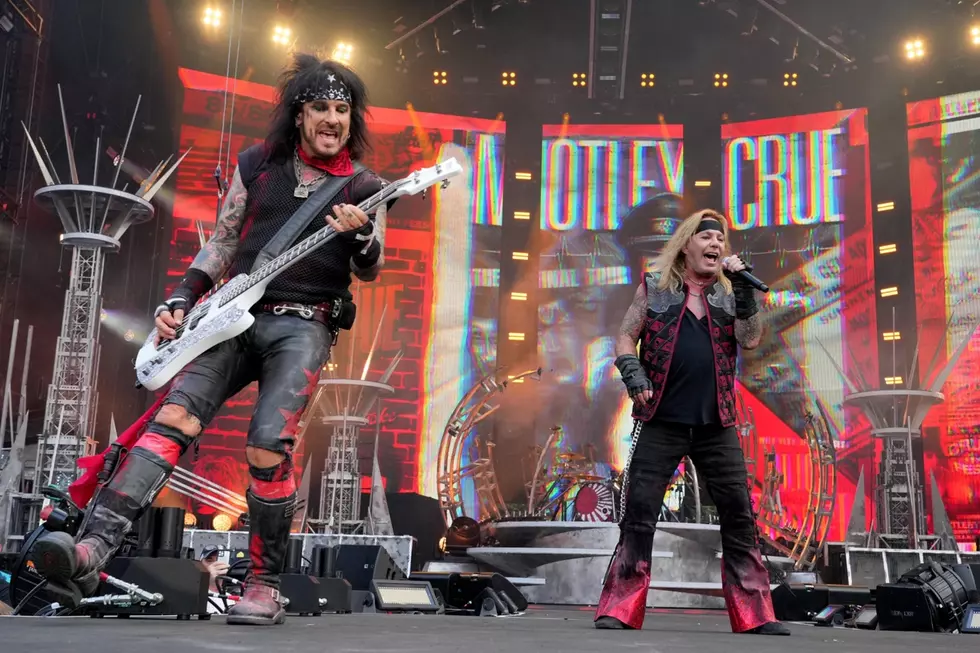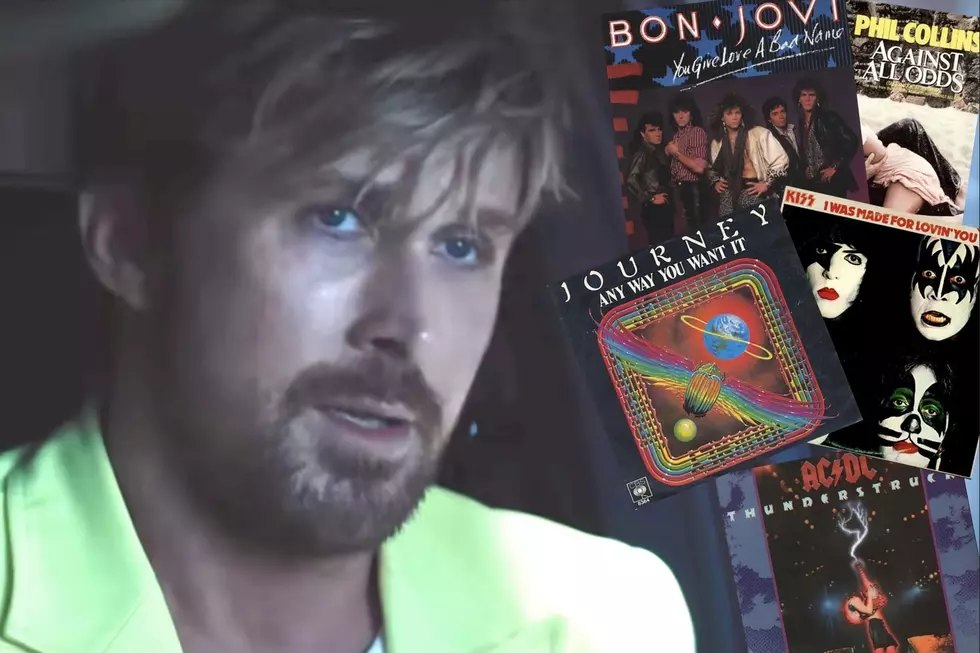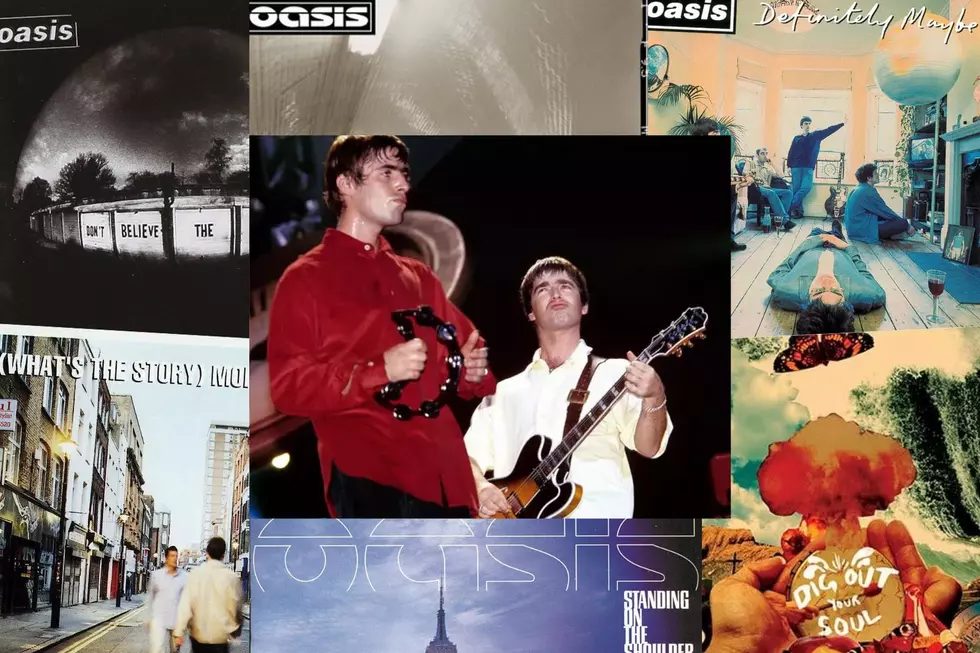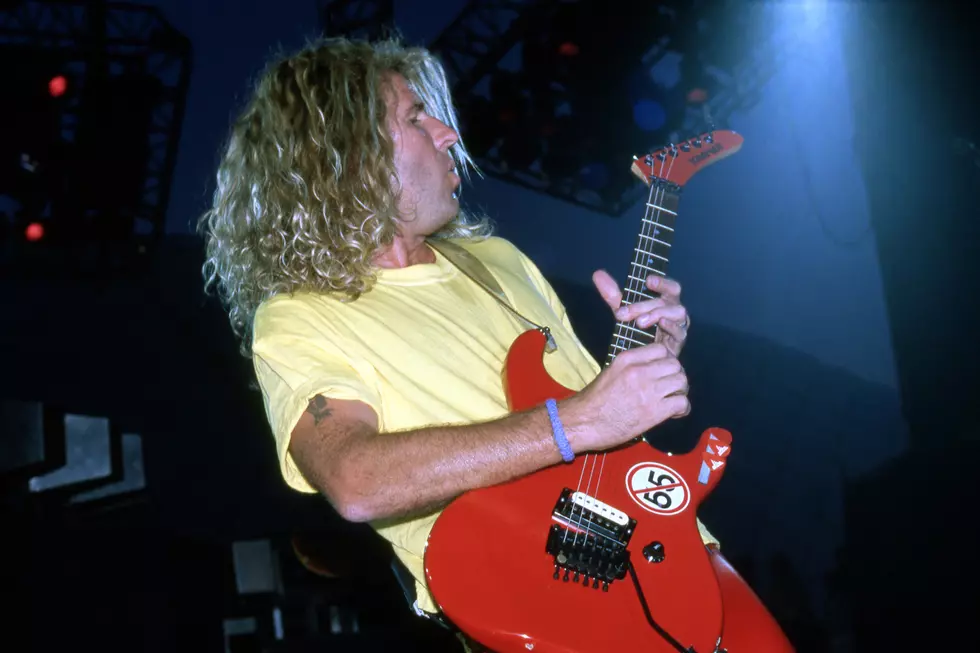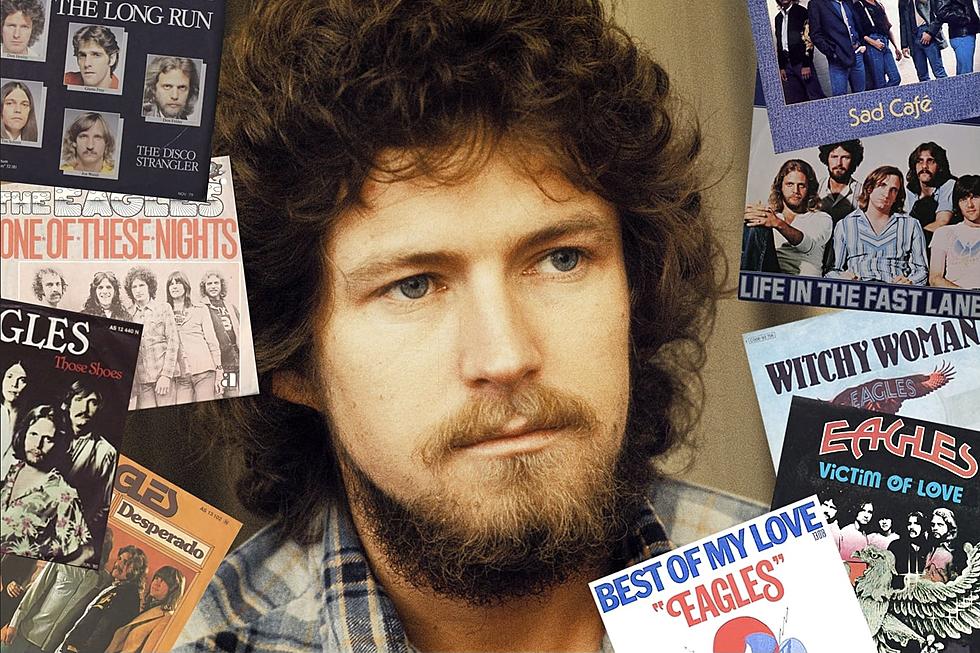
Ranking All 22 Don Henley Eagles Songs From the ’70s
He became the Eagles' unquestioned leader following Glenn Frey's death, but Don Henley got off to a decidedly slow start as a songwriter. He only had one co-credited composition on their 1972 debut.
Things were different by the turn of the '80s. He helped the Eagles to their first and second chart toppers with 1974's "Best of My Love" and 1975's "One of These Nights." Then he fronted hit-song title tracks for two consecutive albums: "Hotel California" was a platinum-selling No. 1 smash in 1977, while "The Long Run" reached the Top 10 in 1979.
In between, he sang and co-wrote 18 more Eagles songs. While ranking them, we put aside cover songs, live versions, box-set extras, reprises or repeated instrumental elements from the era. So, terrific vocal performances on Eagles updates of Jackson Browne's "Nightingale" and Tom Waits' "Ol' '55" won't appear. Neither will "Visions," which showcased Don Felder as principal singer.
Unfortunately, the bottom of the list is dominated by songs from the album that ended the '70s – and, at least for a while anyway, the band:
22. "The Disco Strangler"
From: The Long Run (1979)
Co-credited to Frey, Henley and Don Felder, "The Disco Strangler" is Henley at his most dour – but now featuring a disco bass line! This time, Henley employs a gravelly tenor to skewer people who would dare go out to have a good time, but the painfully obvious theme can only settle into an unmusical ever-revolving riff. "The Disco Strangler" might have driven Eagles fans to their own murderous deeds had it not mercifully started to fade at about the 2:30 mark.
21. "Teenage Jail"
From: The Long Run (1979)
Irritating musically, unfocused lyrically and featuring a squiggly synthesizer solo(!) from Frey, this somehow ended up as the B-side to his galloping chart-topper "Heartache Tonight." That's the definition of Eagles yin and Eagles yang. It's still difficult to believe that J.D. Souther — the easygoing country-rocker who helped compose signature Eagles songs like "Best of My Love," "Victim of Love" and "New Kid in Town" — was involved with such a plodding throwaway.
20. "The Greeks Don't Want No Freaks"
From: The Long Run (1979)
Clearly exhausted, both creatively and spiritually, Henley did what many people do: He got nostalgic. In this case, it was for the college fraternity-party circuit in Austin, where Henley's pre-Eagles band Shiloh used to play on weekends before he found fame. But too much had changed in the interim. So, "The Greeks Don't Want No Freaks" shares the style – but not the attitude, wit, gumption, looseness or humor – of the old '60s frat-rock band ? and the Mysterians.
19. "On the Border"
From: On the Border (1974)
On the Border arrived during the Eagles' transition from roots to rock, personified by the mid-sessions exit of early producer Glyn Johns. (He oversaw only "You Never Cry Like a Lover" and "Best of My Love," though the latter became the first of five Eagles chart-toppers.) The title track illustrated the difficulty they initially had in toughening up. A clumsy attempt at dunking on recently resigned President Richard Nixon, "On the Border" isn't as sharp as it needs to be lyrically – or musically. Were they actually trying for a Temptations vibe?
18. "You Never Cry Like a Lover"
From: On the Border (1974)
If there was ever a doubt, Don Henley reminds us that he's way too good for his girl. (He'd return to this theme on "Busy Being Fabulous" from 2007's Long Road Out of Eden, among others.)
17. "Hollywood Waltz"
From: One of These Nights (1975)
Henley and the Eagles were steaming toward a new rock-focused approach, but this Bernie Leadon co-write showed they hadn't yet completely discarded the band's dusty-booted original sound — and to great effect. Leadon's everywhere on this track, plucking away on the mandolin when he's not adding a ruminative pedal-steel whine.
16. "King of Hollywood"
From: The Long Run (1979)
There's a welcome echo of Walter Becker here, both in the low-voiced foreboding and the track's Los Angeles environs – but without the perverse sense of humor, of course. It all devolves into another great guitar workout.
15. "Doolin-Dalton"
From: Desperado (1973)
"Doolin-Dalton" was a great scene-setter. Maybe too great. The Eagles ended up taking the iffy Old West subject too far, while returning to this song's musical theme an utterly unneeded number of times – including both an instrumental version and an album-closing reprise.
14. "After the Thrill Is Gone"
From: One of These Nights (1975)
Taking a rueful look back at the wreckage a lost relationship was already becoming old hat for Frey and Henley, even this early on, and that's likely why "After the Thrill Is Gone" hasn't gained wider attention. This tucked-away gem is made complete by Don Felder's solo, which adds a touch of simmering anger.
13. "Victim of Love"
From: Hotel California (1976)
"Victim of Love" begins with a stuttering, snarling guitar, then Henley paints a dim portrait of this desperate search for late-night companionship amid a series of nasty Felder retorts. The guitarist also earned a co-writing credit on the track.
12. "Wasted Time"
From: Hotel California (1976)
Henley co-wrote and sang it, but "Wasted Time" really speaks to Frey's passion for R&B music – in this case, '70s-era Philly soul. They added some distinctly un-country rock-like strings, and then Frey – who once described Henley as "our Teddy Pendergrass" – left his longtime bandmate to his own vocal devices. "You're not going to find that track on a Crosby, Stills & Nash record or Beach Boys record," Frey added. "Don's singing abilities stretched so many of our boundaries. He could sing the phone book. It didn't matter."
11. "Those Shoes"
From: The Long Run (1979)
The musical relationship between Felder and Joe Walsh, as both foils and friends, helped define the group's sound in the late '70s. Together, they give this Henley-sung track a steely menace. Felder co-wrote "Those Shoes" and impressively mixes it up with Walsh during one of the decade's most memorable talk-box street fights – and that's saying something.
10. "Saturday Night"
From: Desperado (1973)
A true band composition, "Saturday Night" grew out of a stray thought Meisner had about growing up. "I was sitting there one night, and I came up with the line 'What ever happened to Saturday night?'" Meisner later remembered. "When I was younger, I would be out partying and with girls and having fun. And that's what it was about: Whatever happened to it? And the answer was, 'You're older now.'" This moment of introspection, delicately led along by Leadon's mandolin, grounds an album that tried to get bogged down in its Big Concept.
9. "Witchy Woman"
From: Eagles (1972)
Henley's only songwriting credit on the Eagles' first album arrived courtesy of a half-finished song Leadon had been working on since his days with the Flying Burrito Brothers. Leadon "came over one day and started playing this strange, minor-key riff that sounded sort of like a Hollywood movie version of Indian music — you know, the kind of stuff they play when the Indians ride up on the ridge while the wagon train passes below," Henley later told Cameron Crowe. "It had a haunting quality, and I thought it was interesting, so we put a rough version of it down on a cassette tape." Frey completed things with another standout guitar solo.
8. "The Last Resort"
From: Hotel California (1976)
Henley would explicitly tie "The Last Resort" to his growing activism over environmental issues, and there is certainly plenty of righteous anger directly relating to our poor stewardship. But, in context, this always felt like something more than another of his political screeds. An album defined by empty dissolution instead ends the only way it could: with a lonesome figure, surrounded by wreckage of his own making.
7. "Desperado"
From: Desperado (1973)
The title song for this Old West-themed project had been rattling around in Henley's head since at least 1968, but Frey was the main proponent of the larger rockers-as-cowboy-outlaws concept. The objective, it seemed, was to make a grand statement so that the Eagles might be taken more seriously. They read books about tumbleweed antiheroes like Bill Dalton, plugged in some interludes and then updated "Desperado" to make it all fit. Initially, however, the song had what would have been a truly tragic astrological bent. Frey remembered Henley's original lyric as, "Leo, my God, why don't you come to your senses?" Glad the Eagles did.
6. "Life in the Fast Lane"
From: Hotel California (1976)
Walsh was fooling around with this riff in a loose rehearsal moment when the others took notice. Henley asked, "What the hell is that? We've got to figure out to make a song out of that." Then, some time later, Frey was barreling down the Santa Monica highway with a drug dealer he called "the Count." "I was riding shotgun in a Corvette on the way to a poker game. The next thing I knew we’re going about 90 miles an hour," Frey later remembered. "I say, 'Hey, man, what are you doing?' And he looked at me and he grinned, and he goes, 'Life in the fast lane!'" Released as the final single from Hotel California, the resulting single shot to No. 11.
5. "The Sad Cafe"
From: The Long Run (1979)
Despite reloading with Timothy B. Schmit for The Long Run, a malaise had clearly crept in. This LP was dotted with halfhearted efforts before the Eagles finally righted things with the album-closing "The Sad Cafe." In many ways, this cinematic track sets a template for Don Henley's subsequent solo career, as he offers a darkly ruminative examination of love lost. But it wouldn't have been such a fitting finale without Felder's elegiac, utterly virtuosic turn on guitar.
4. "The Long Run"
From: The Long Run (1979)
The Eagles had scaled the mountain top, reaching an era-defining plateau with Hotel California. There was, really, nowhere to go but down. Still, as the title track from the band's final classic-era album makes clear, they intended to go down swinging. "Disco had exploded, and punk was on the rise," Henley told Rolling Stone. "We were beginning to see press articles about how we were passe. Those kind of jabs were part of the inspiration for the song The Long Run: Who is gonna make it? We'll find out in the long run.'" Of course, the group promptly imploded. But their legacy only grew, eventually leading the Eagles back for an improbable '90s-era reunion.
3. "Best of My Love"
From: On the Border (1974)
This is remembered today as the Eagles' breakthrough single, but there was a bit of controversy involved with reaching that goal. Seems the band's label shortened the song for airplay — without clearing anything beforehand. "Best of My Love" became the first chart-topper for the Eagles but not before going from 4:34 on 1974's On the Border to 3:25 on the AM radio edit. That so infuriated everyone that the band came up with an ingenious plan, hacking a piece out of a 45 single covered in gold paint then presenting it to the bosses at the Asylum Records offices. Message received.
2. "One of These Nights"
From: One of These Nights (1975)
The goal was to break the ballad template, stirring in contemporary R&B sounds and a sneaky lyric that pulls no punches. Everything was coming together for Frey and Henley, who were quickly emerging as the group's best songwriters. Still, newcomer Don Felder played a huge role in helping the Eagles shed their country-rock pretensions. He arranged the unforgettable bass and guitar signature for "One of These Nights," and his searing solo then neatly underscores this No. 1 song's bitter sense of missed opportunities.
1. "Hotel California"
From: Hotel California (1976)
Turns out this song's off-the-cuff brilliance wasn't so off-the-cuff, after all. The concluding twin-guitar solo on "Hotel California" has moved into classic-rock lore, representing the most famous in a series of fiery collaborations between Felder and recently installed new member Joe Walsh. But it wasn't improvised at all. Instead, the completed Eagles song mirrors — almost note for note, at Henley's insistence — the original instrumental demo that Felder created in his Los Angeles home. A call to Felder's housekeeper led to a frantic search through all of his cassettes. She then put the found tape into a boombox and played it through the phone so Walsh and Felder could learn the original twin solos.
Rockers Whose Bands Tried to Erase Them
Gallery Credit: Nick DeRiso
The Complicated History of the Eagles’ ‘Victim of Love’
More From Ultimate Classic Rock
